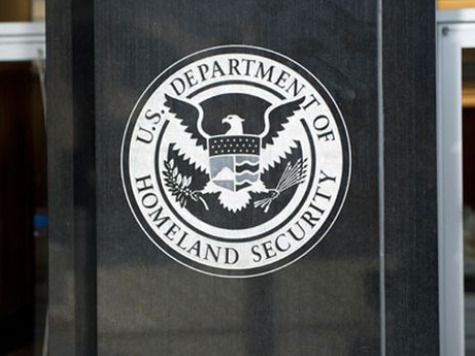The U.S Department of Homeland Security (DHS) office of the inspector general (OIG) received 29,000 complaints, opened 1,000 investigations, and achieved 300 convictions in 2014 related to employee misconduct and corruption involving Border Patrol agents and other officers from the various DHS components.
A U.S. Border Patrol agent and a former prison guard were sentenced to 15 years and nine years respectively in November of last year for providing sensitive information to Mexican drug cartels and arranging for the murder of an informant.
That is just one example demonstrating the breadth of the employee misconduct and corruption cases handled by the DHS OIG.
In fiscal 2014 (Oct. 1, 2013 thru Sept. 30, 2014), the DHS watchdog, received nearly 29,000 complaints and opened investigations in excess of 1,000, all related to misconduct and corruption by department staff, reveals a recently released report entitled, “Major Management and Performance Challenges Facing the Department of Homeland Security.“
Furthermore, during fiscal 2014, the DHS OIG achieved 300 convictions and 100 personnel actions. The inspector general also had “approximately 200” cases accepted for prosecution.
“Smugglers and drug traffickers threaten border security by targeting those crossing the border legally and by trying to corrupt CBP officers and border patrol agents,” warns the report.
The OIG did not breakdown the figures by DHS components such as Customs and Border Protection, Immigration and Customs Enforcement, the Transportation Security Administration, and FEMA, but it did provide samples of some of the cases it deals with.
No one at the DHS OIG responded to requests for comment.
“Our investigations cover a large scope of unlawful activities and misconduct in which DHS employees engage or that otherwise affect the Department’s programs,” explains the report. “Investigations related to employee accountability and integrity occur when Department employees, who have inside information concerning the organization’s security procedures, contracting practices, and property management, use that information for personal gain.”
DHS has nearly 250,000 federal workers in addition to another 250,000 contractors who are responsible for keeping the U.S. homeland safe.
The report points out that “the vast majority of these employees are honest, dedicated public servants, yet those who are not, can do incalculable damage to our national security.”
Only a small percentage of all DHS employees are convicted of criminal misconduct and corruption.
In August 2012, the DHS IG, while testifying before a House panel, broke down the misconduct cases into four categories:
Corruption involving bribery, disclosure of classified information, espionage and smuggling, among other things; Violations of civil rights and liberties by employees; Defrauding DHS programs and financial systems; Miscellaneous, including those involving child pornography, false statements, and “contact with foreign governments/nationals,” among other violations that “may not be criminal in nature.”
Among the misconduct cases handled by the DHS IG in 2013 and 2014 are Border Patrol agents receiving bribes to provide sensitive information; a TSA supervisory transportation security officer in the U.S. Virgin Islands assisting drug traffickers to bypass security at an airport; and a senior Federal Protective Service acquisitions official conspiring to receive bribes by a government official, the report notes.
One of the cases mentioned in the report highlighted the involvement of Ivhan Herrera-Chiang, a former U.S. Border Patrol agent, and Michael Lopez-Garcia, a former state prison guard, in a scheme to provide sensitive information to Mexican drug traffickers and to arrange for the murder of an informant.
According to an FBI press release, “the defendants formed a ‘criminal partnership’ to earn money by helping traffickers smuggle drugs and aliens into the United States.”
“Herrera assisted Lopez-Garcia (in return for bribes) by providing him with sensitive information–including sensor maps, combinations to gates located near the Mexican border, computer records concerning prior drug seizures, and the location of Border Patrol units–to which Herrera had access by virtue of his employment as a Border Patrol Agent,” adds the FBI.
“During the final stages of the partnership, Lopez-Garcia attempted to arrange for the murder of a government informant after becoming fearful that the informant might be able to provide incriminating information about his activities,” also says the release. “As part of this plan, Lopez-Garcia obtained confidential information concerning the informant’s identity from Herrera and then relayed this information to his Mexican trafficking associates.”
The DHS inspector general is responsible for investigating allegations of criminal, civil, and administrative misconduct involving DHS employees, contractors, and grantees. These investigations can result in criminal prosecutions, fines, civil monetary penalties, administrative sanctions, and personnel actions.
The U.S. attorney’s office handles the prosecutions.

COMMENTS
Please let us know if you're having issues with commenting.